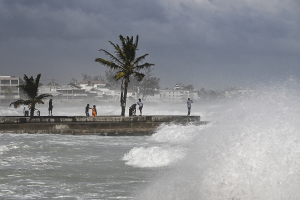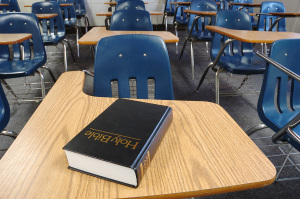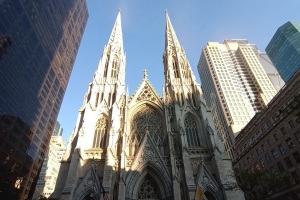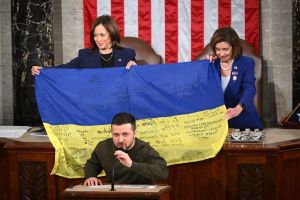ICC complaint says China rounding up Uyghurs who fled to other countries: 'Never heard from again'
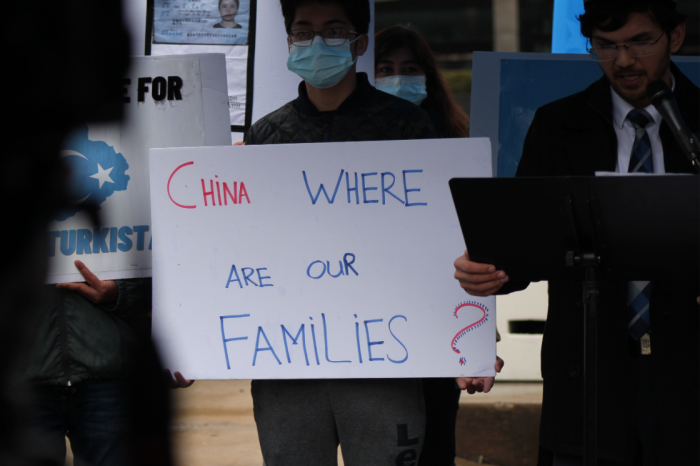
A legal team acting on behalf of exiled Uyghur leaders has submitted new evidence to the International Criminal Court saying that ethnic Muslim minorities who fled China into neighboring countries have been seized, repatriated and have not been seen or heard from since.
The allegations come as part of the ongoing effort to convince the international body to open an investigation into actions taken by the Chinese government against ethnic Muslims in western China amid accusations of "genocide."
They claim that because Muslims who fled human rights abuses in China — which is not a party to ICC — were repatriated from countries that are parties to the ICC, the Hague-based court has jurisdiction to hold perpetrators accountable.
A "hefty dossier" of evidence was submitted to the ICC's Office of the Prosecutor last Thursday on behalf of the East Turkistan Government in Exile and the East Turkistan National Awakening Movement. The dossier outlines that most Muslim minorities who fled to Tajikistan have been repatriated back to China.
East Turkistan National Awakening Movement describes itself as an “international movement striving for the restoration of East Turkistan’s independence as an open, pluralistic, Republic guaranteeing Human Rights and Freedoms for all.”
What the East Turkistan National Awakening Movement refers to as East Turkistan is recognized by the rest of the world as the Xinjiang Uyghur Autonomous Region in western China, home to Muslim religious minorities such as Uyghurs and Kazakhs. In Xinjing, communist authorities have been accused of "genocide" by international actors for detaining over 1 million ethnic minorities in concentration camps under the guise of guiding Muslims away from terrorist ideologies.
Last July, lawyers acting on behalf of the East Turkistan National Awakening Movement and the East Turkistan Government in Exile filed a complaint with the ICC, asking for an investigation into Chinese officials over their treatment of Uyghurs, which they characterized as “genocide and crimes against humanity.”
The ICC initially declined to take such action, but lawyers for the Uyghur activists are confident that the new evidence will convince the ICC to investigate the Chinese government.
Nikita Bernardi, who leads public outreach to convince the ICC to investigate China’s actions against Uyghurs, hosted a webinar featuring the legal team and the leadership of the East Turkistan Government in Exile and the East Turkistan National Awakening Movement on Monday.
"This evidence was submitted in order to establish jurisdiction for the International Criminal Court over crimes which are being committed by Chinese authorities against Uyghurs," Bernardi said.
One member of the legal team, Rodney Dixon, alleged that at a minimum, "85% to 90% of the Uyghur population" in neighboring Tajikistan "has been targeted and moved out into China.”
He spoke of “a very sophisticated and cunning campaign to do this just below the radar, over time and patiently in order to achieve the goal of ensuring that there are no Uyghurs, essentially, left in Tajikistan and that they’re all in China, where they can be targeted, controlled and persecuted.”
According to Dixon, there are approximately 100 Uyghurs left in Tajikistan who are “heavily controlled by Chinese operatives” in a “toxic environment.” That number is down from a few thousand over a decade ago.
After remarking that “Our investigators have been on the ground for some time and still are,” Dixon credited them for unearthing “a shocking discovery that … we have made, and it simply can’t now be overlooked.”
The legal team conducted their investigations from January to May.
“We were able to get persons on the ground in various countries, conducting interviews, recording interviews, taking photographs of what they were able to see as well,” Dixon said. “All of that material has been gathered and it is now available and submitted to the prosecutor.”
“From January to May, we conducted these investigations, and we were able to get a substantial body of evidence, which we have submitted to the prosecutor last week, addressing exactly the issues that she said we needed to,” Dixon added. “She said there were a number of questions that were not properly addressed because there wasn’t sufficient evidence. We’ve now given the prosecutor that evidence.”
Dixon declined to go into detail about the evidence, citing concerns about confidentiality.
However, a copy of the filing obtained by The U.K. Times indicates that "Chinese Public Security Bureau operatives who are in Tajikistan" have directed raids to be carried out on "bazaars where the Uighurs work." Additionally, Chinese authorities are accused of directing "local Tajik police to detain all the Uighurs who do not have the ‘correct’ paperwork.”
"[A]n entire bazaar was raided and blocked off until all the Uighurs working there had been seized," the filing states. "The Uighurs then get deported by Chinese officials back to China in groups of about ten. The deportation groups are kept small to avoid attention.”
The report further claims that China’s consulate in Tajikistan exerts its “complete control over the Uighurs’ paperwork and purposely delays the granting of visas, work permits and other documentation that the Uighurs need to live in Tajikistan.”
Dixon contends that under the ICC procedure, the prosecutor would go to judges “to request that an investigation is opened.”
Dixon acknowledged that while its process can be slow, the ICC “is the only body at the international level that can actually investigate and prosecute Chinese officials for what has happened.”
He stressed that the ICC was set up to deal with these kinds of mass human rights violations, describing an investigation into actions taken against Uyghurs as “a case like none other for the ICC to address.”
Dixon expressed hope that that “very important step will be taken very soon.”
Dixon recalled that in previous cases, the ICC has determined that even when the main country involved in a complaint is not "signed up to the ICC," "that doesn’t mean that the Court doesn’t have jurisdiction."
"[T]he court can hear a case if an element of the crime that you are alleging takes place in an ICC state party territory," he explained. "In our case, it’s Tajikistan and Cambodia, which are both ICC state parties where we say that acts have occurred that are elements of crimes over which the court has jurisdiction.”
“Because they occur on the territory of the ICC state party, the prosecutor can therefore investigate as long as one element occurs there," he continued. "Then, the court has jurisdiction over that aspect but also the continuation of that crime into China as well."
Dixon said the purpose of the investigation is to “decide whether you can bring charges against the actual people who have perpetrated these deeds.”
“What we’ve been able to find from our investigations is that Chinese authorities, Chinese operatives have in fact gone onto the territory of an ICC state party, that’s Tajikistan in this case … and they have identified, targeted and rounded up Uyghur persons living there in order to deport them back to China," he said.
"And in the cases that we’ve looked at, those persons who have been … in that way detained and taken back by Chinese officials, they have never been heard from or seen again.”
Noting that Chinese officials “have exposed themselves to the ICC’s jurisdiction” by rounding up Uyghurs in the ICC state party of Tajikistan, Dixon stressed that actions taken by Chinese officials against Uyghurs are “not just those acts isolated on their own." Instead, he said they are “the very first acts within the overall plan of China to commit crimes against humanity and genocide."
The leadership of the East Turkistan Government in Exile also spoke during the webinar, attempting to put the Chinese government’s actions in perspective.
President of East Turkistan Government in Exile Ghulam Yaghma argued that the Chinese government’s actions constitute “the most horrific crimes against … humanity and also genocide in the 21st century.”
East Turkistan Government in Exile Prime Minister Salih Hudayar called on “all governments around the world, especially governments that adhere to democracy, that adhere to human rights, that adhere to freedom, and especially those that are member states of the International Criminal Court to support our case, to support us in obtaining justice through the international law.”
He also urged “organizations and individuals who care about the world, who care about human rights, who care about justice, who care about ending atrocities to help us by supporting our case at the ICC both materially and morally and spiritually.”
Ryan Foley is a reporter for The Christian Post. He can be reached at: ryan.foley@christianpost.com
















